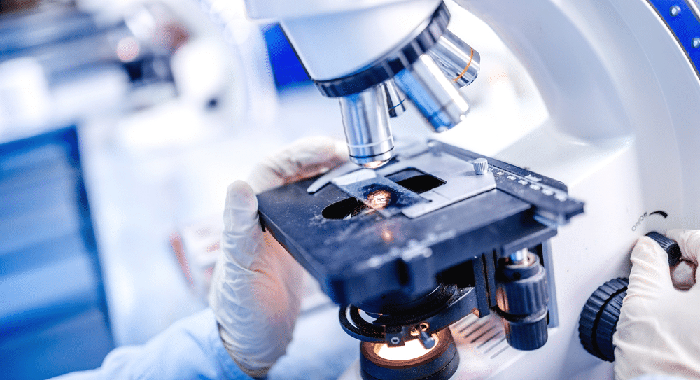Parliament has passed a law regulating the operations of medical laboratories in St. Vincent and the Grenadines, giving current laboratories nine months in which to obtain a licence or cease operation.
In piloting the Medical Laboratories Bill, which was passed with bipartisan support, Minister of Health Jimmy Prince spoke of the role that medical laboratories played in managing the outbreaks of Zika and chikungunya, as well as HIV and the COVID-19 pandemic.
He said that experts have warned that there will be outbreaks of new diseases as well as the reemergence of some illnesses.
“I’m advised that between 70 to 80% of the information used to make critical decisions in the medical field are being provided by laboratories,” Prince said, adding, “They are critical to the clinical and public health management.”
He said that as the nation continues to battle new and emerging diseases, lab information will continue to be critical not only for those diseases but also NCDs, such as cancer, cardiovascular illnesses, and, among others, diabetes.
The minister said his government has already signalled its intention to focus a lot on NCDs in 2023 and beyond, as NCDs continue to be the greatest killers of Vincentians.
The bill was drafted at the level of the Organisation of Eastern Caribbean States and was pursued by legal experts at the Attorney General’s Office.
The law establishes the Medical Laboratories Council and provides for the licensing and monitoring of medical laboratories and other related matters.
Prince said the bill comes at a critical time when the government is doubling down on the reformation and revolution of the health sector, adding, “because we are indeed expanding and modernising the health sector.
He said that the bill emerged from a select committee of parliament, which has the input of a wide cross section of stakeholders, including officials of the national laboratory system, representation from all of the private sector, laboratories, the Medical Association, the Pharmaceutical Association, medical professionals and the medical board.
“It is very obvious that medical services are expanding here in St. Vincent and the Grenadines very, very quickly, both at the private level and at the public sector level,” Prince said, adding that diagnostic services have been increasing as a consequence.
“Because there is no doubt that accurate and reliable laboratory diagnoses are the foundation of this country’s disease prevention and management thrust,” he said.
The health minister told Parliament that laboratories are very critical in the wide scheme of things.
“So, we need legislation to ensure that medical labs meet international standards and can provide the critical and reliable support needed for the health of local and visitor populations.
“We know that a lab result is only as accurate as the quality of the lab system that provided it is important, we never had any laws before, to deal with these issues,” Prince said.
“At that level, we should not have to be worried or uncertain about our test results, or even about the laboratory itself. But if they remain unregulated, unmonitored, we will never be sure. Someone needs to go to the lab and feel comfortable that the results they’re going to get the correct results and that the medical officer is able to give them a diagnosis and treatment that is correct.”
He noted that at the height of the COVID 19 pandemic, many new “pop-up lab” and suppliers of testing kits surfaced.
Prince said this was opportunistic, in that there was a demand to which the laboratories were responding.
“Many of them were not in the business of selling supplies, or even doing laboratory tests. But they became involved,” Prince said, adding that the Ministry of Health found it a challenge to curtail these activities by individuals and entities.
“The activities threatened to derail the credibility of our testing protocols,” he said, adding the ministry was “able to get on top of that, in short order.
“It became evident that urgent action was needed to regulate these services nationally. But no laws existed to give the experts any comfort, or any leverage or any head room to deal them. Entities engaging in these services that generate information that impact on health outcomes must be made to meet minimum standards.”
He said that laboratory information supports many important decisions across the public health sector, not just in health, but also in agriculture, fisheries and vet services.
Prince said that in the tourism sector, visitors would like to know that they have access to reliable testing services that can provide accurate information to allow them to continue to manage their health condition while they are away from home.
The law says that the state does not commit an offence for breach of the licensing requirements.
The law provides that the renewal of a licence should not be granted if the medical laboratory has not maintained the standards under the law.
The law provides for the monitoring and inspection of a medical lab by the council, which will give a particular grade, and there is an appeal tribunal.
The law requires the operator and staff of a medical laboratory to maintain the confidentiality of all reports and records relating to a person and results of tests except for the purpose of disclosure to a medical practitioner.”
“… this bill potentially is a game changer as we try to deliver quality care here in St. Vincent and the Grenadines, medical laboratories in St. Vincent and the Grenadines, both public and private will continue to do their job.
“I know they have been doing a very good job in this country. But I think we need to come up international standards. We need to be able to monitor people, to inspect them and to see what they’re doing in order to help in the medical services here in St. Vincent and the Grenadines.”







BRAVO SVG!!!